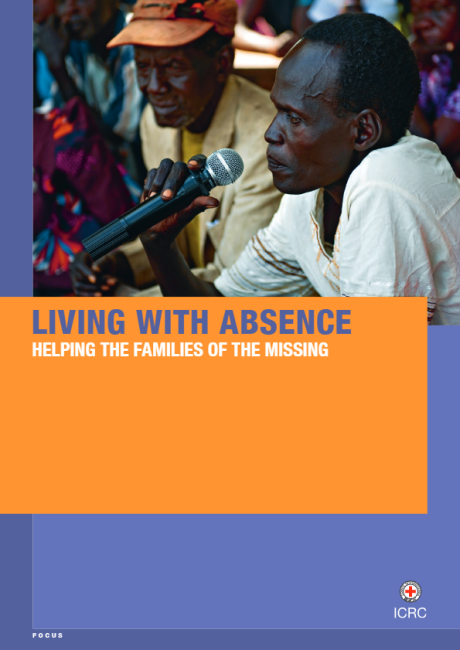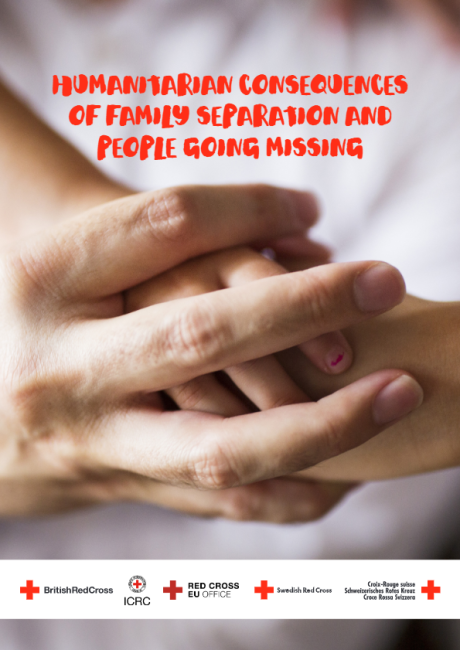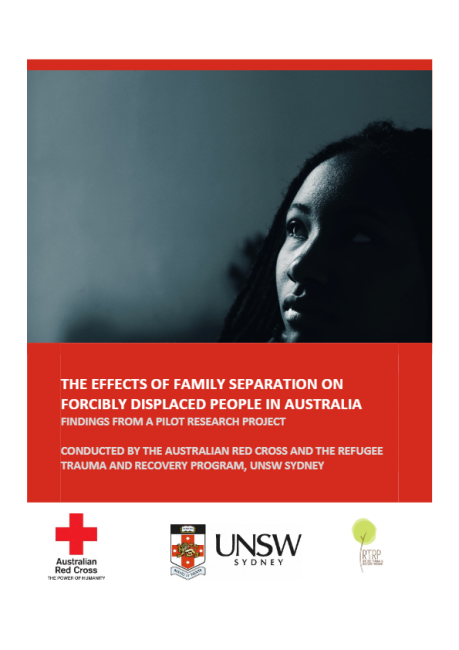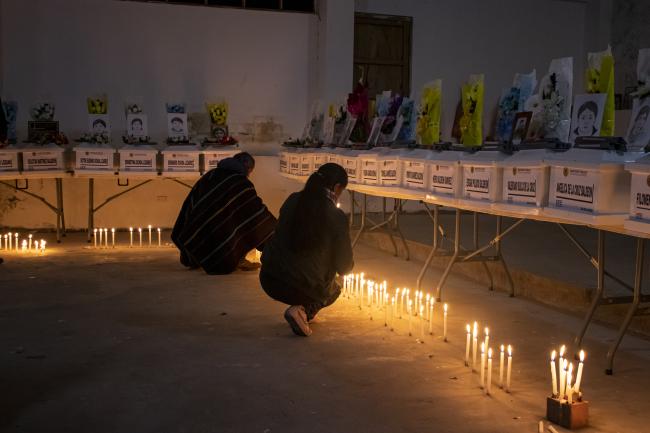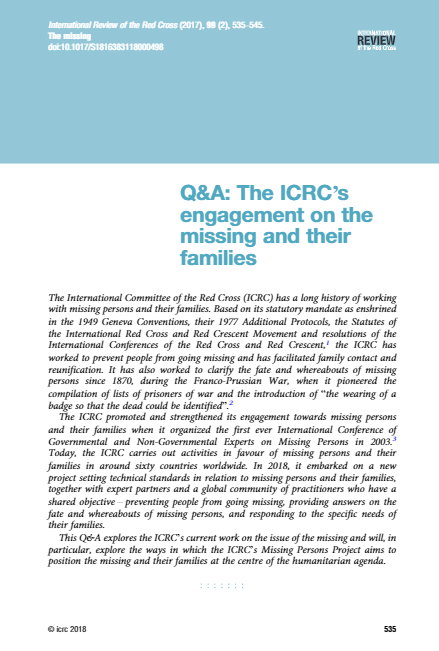
Q&A: The ICRC’s engagement on the missing and their families
The International Committee of the Red Cross (ICRC) has a long history of working with missing persons and their families. Based on its statutory mandate as enshrined in the 1949 Geneva Conventions, their 1977 Additional Protocols, the Statutes of the International Red Cross and Red Crescent Movement and resolutions of the International Conferences of the Red Cross and Red Crescent, the ICRC has worked to prevent people from going missing and has facilitated family contact and reunification. It has also worked to clarify the fate and whereabouts of missing persons since 1870, during the Franco-Prussian War, when it pioneered the compilation of lists of prisoners of war and the introduction of "the wearing of a badge so that the dead could be identified". This Q&A explores the ICRC's current work on the issue of the missing and will, in particular, explore the ways in which the ICRC's Missing Persons Project aims to position the missing and their families at the centre of the humanitarian agenda.


